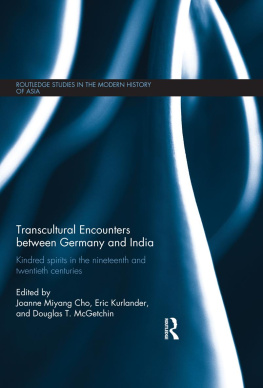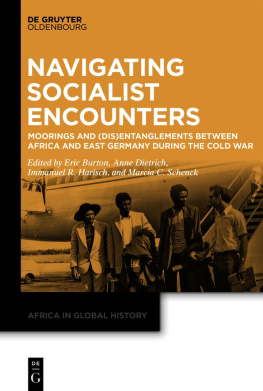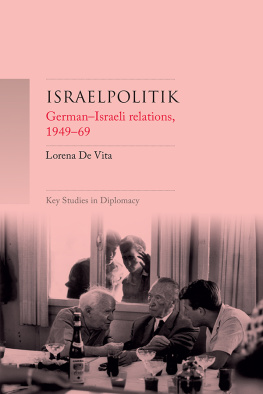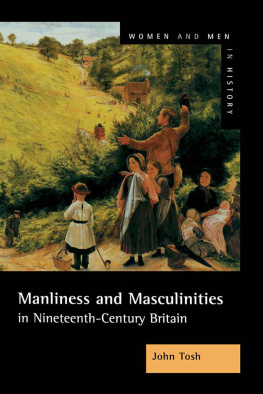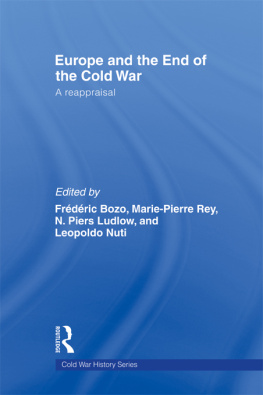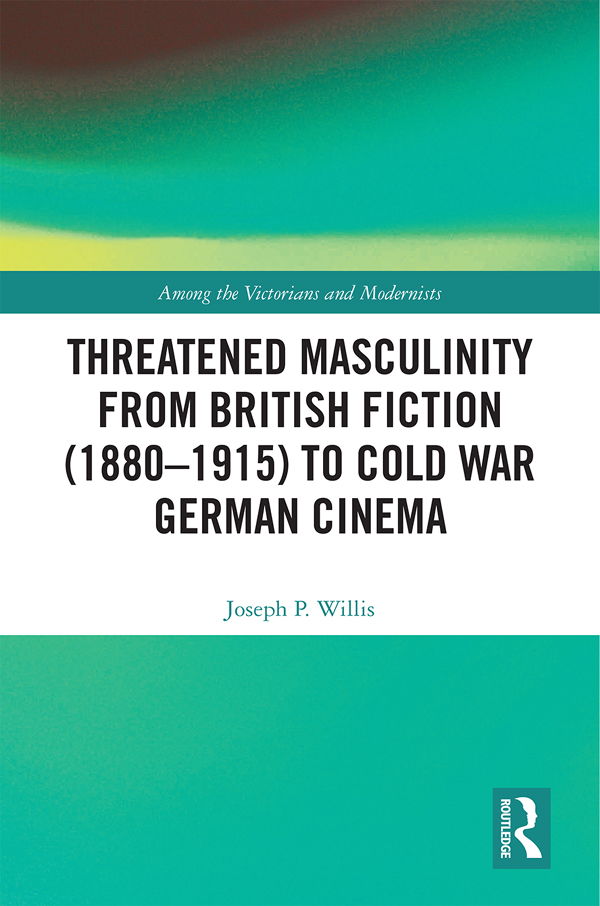Threatened Masculinity from British Fiction (18801915) to Cold War German Cinema
The impact of the Cold War on German male identities can be seen in the nations cinematic search for a masculine paradigm that rejected the fate-centered value system of its National- Socialist past while also recognizing that German males once again had become victims of fate and fatalism but now within the value system of the Soviet and American hegemonies that determined the fate of Cold War Germany and Central Europe. This monograph is the first to demonstrate that this Cold War cinematic search sought out a meaningful masculine paradigm through film adaptations of late-Victorian and Edwardian male writers who likewise sought a means of self-determination within a hegemonic structure that often left few opportunities for personal agency.
In contrast to the scholarly practice of exploring categories of modern masculinity such as Victorian imperialist manliness or German Cold War male identity as distinct from each other, this monograph offers an important, comparative corrective that brings forward an extremely influential century-long trajectory of threatened masculinity. For German Cold War masculinity, lessons were to be learned from history namely, from late-Victorian and Edwardian models of manliness. Cold War Germans, like the Victorians before them, had to confront the unknowns of a new world without fear or hesitation. In a Cold War mentality where nuclear technology and geographic distance had trumped face-to-face confrontation between East and West, Cold War German masculinity sought alternatives to the insanity of mutual nuclear destruction by choosing not just to confront threats but to resolve threats directly through personal agency and self-determination.
Joseph P. Willis received his PhD from The University of Tulsa in Victorian Studies. After teaching for a year at The University of Tulsa on a postdoctoral scholarship, he currently is employed as an adjunct professor of English at The University of Tulsa and at Tulsa Community College. Willis has given numerous talks and presentations on West German Cold War concerns: Threatened masculinity and the arms race in Rainer Boldts 1985 film series Das Rtsel der Sandbank, Transgressive masculinity in Vadim Glownas 1986 Des Teufels Paradies, and Threatened masculinity in Paul Mays 1967 Das gefleckte Band. He has received the Certificate German as Foreign Language (Zertifikat Deutsch als Fremdsprache) from the Goethe Institute as well as a Fulbright student scholarship for teaching and research in Vienna, Austria. Additionally, he has received numerous grants from the Goethe Institute for German language seminars held in both Germany and the United States.
Among the Victorians and Modernists
Edited by Dennis Denisoff
This series publishes monographs and essay collections on literature, art, and culture in the context of the diverse aesthetic, political, social, technological, and scientific innovations that arose among the Victorians and Modernists. Viable topics include, but are not limited to, artistic and cultural debates and movements; influential figures and communities; and agitations and developments regarding subjects such as animals, commodification, decadence, degeneracy, democracy, desire, ecology, gender, nationalism, the paranormal, performance, public art, sex, socialism, spiritualities, transnationalism, and the urban. Studies that address continuities between the Victorians and Modernists are welcome. Work on recent responses to the periods such as Neo-Victorian novels, graphic novels, and film will also be considered.
12 Art, Race, and Fantastic Color Change in the Victorian Novel
Jessica Durgan
13 Philanthropy and Early Twentieth-Century British Literature
Milena Radeva-Costello
14 Lucas Malet, Dissident Pilgrim: Critical Essays
Edited by Jane Ford and Alexandra Gray
15 Fieldwork of Empire, 18401900
Intercultural Dynamics in the Production of British Expeditionary Literature
Adrian S. Wisnicki
16 Threatened Masculinity from British Fiction (18801915) to Cold War German Cinema
Joseph P. Willis
For more information about this series, please visit: https://www.routledge.com/Among-the-Victorians-and-Modernists/book-series/ASHSER4035
First published 2019
by Routledge
52 Vanderbilt Avenue, New York, NY 10017
and by Routledge
2 Park Square, Milton Park, Abingdon, Oxon, OX14 4RN
Routledge is an imprint of the Taylor & Francis Group, an informa business
2019 Taylor & Francis
The right of Joseph P. Willis to be identified as author of this work has been asserted by him in accordance with sections 77 and 78 of the Copyright, Designs and Patents Act 1988.
All rights reserved. No part of this book may be reprinted or reproduced or utilised in any form or by any electronic, mechanical, or other means, now known or hereafter invented, including photocopying and recording, or in any information storage or retrieval system, without permission in writing from the publishers.
Trademark notice: Product or corporate names may be trademarks or registered trademarks, and are used only for identification and explanation without intent to infringe.
Library of Congress Cataloging-in-Publication Data
Names: Willis, Joseph, author.
Title: Threatened masculinity from British fiction (18801915) to Cold-War German cinema / Joseph Willis.
Description: New York, NY : Routledge, 2019. | Series: Among the Victorians and Modernists | Includes bibliographical references and index. |
Identifiers: LCCN 2019013718 (print) | LCCN 2019015937 (ebook) | ISBN 9780429290008 (Master) | ISBN 9781000005134 (Pdf) | ISBN 9781000011975 (ePub) | ISBN 9781000018493 (Mobi) | ISBN 9780367210915 (hardback : alk. paper) | ISBN 9780429290008 (ebk)
Subjects: LCSH: Motion picturesGermany (West)History. | English fiction19th centuryHistory and criticism. | English fiction20th centuryHistory and criticism. | English fictionAdaptationsHistory and criticism. | MasculinityGermany. | Motion picturesSocial aspectsGermanyHistory20th century.
Classification: LCC PN1993.5.G3 (ebook) | LCC PN1993.5.G3 W543 2019 (print) | DDC 791.430943dc23
LC record available at https://lccn.loc.gov/2019013718
ISBN: 978-0-367-21091-5 (hbk)
ISBN: 978-0-429-29000-8 (ebk)
Typeset in Sabon
by codeMantra
To the Memory of
Dr. Joseph A. Kestner (19432015)
Advisor, Mentor, Friend
I would like to thank the faculty of the English Department at the University of Tulsa for their collective inspiration for the entirety of the writing process research; write-through; final draft; revision; and, finally, submission.
I would also like to extend my deepest appreciation to Professor Randall Fuller for recognizing the discourse value of cross-disciplinary subject matter; to Professor Robert Jackson for his thoughtful guidance and insightful advice on film and media studies; to Professor Dennis Denisoff for his timely and invaluable advice and encouragement; and, finally, to Professor Holly A. Laird for acting as a catalyst to initiate and continue the extensive process involved in manuscript revision. Without Professor Lairds prodding and encouragement, the process of revision would have been considerably delayed, and very possibly, a finished manuscript would have never been realized.


